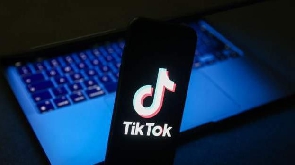 TikTok na very popular social media platform
TikTok na very popular social media platform
Di Nigerian Communications Commission (NCC) don warn say e dey harmful to participate for some TikTok video challenges.
Authorities say one new TikTok trend wey dem call "Invisible Challenge" fit expose devices to information-stealing malware.
NCC give dis advice through dia Computer Security Incident Response Team (NCC-CSIRT).
For inside di advisory, di communication body say hackers don take advantage of di viral TikTok challenge to tif informate.
Dem explain say hackers dey use di challenge to share one information-stealing malware wey dem dey call WASP (or W4SP) stealer.
How dem dey use di challenge tiff users information?
Di craze dey urge users to feem themselves naked, den use TikTok "Invisible Body" filter to replace dia body wit one blurry background.
But officials say some users don begin attach one link to videos wey dey download virus put for di devices.
NCC say na from there dem go come tiff users data.
Attackers dey attract users by uploading videos to TikTok as part of di trend, but dem go attach one link to one software wey dey known as "unfilter", wey claim say fit remove di filter from di video.
Di hackers dey hope say di link go trick pipo to reason say dem go see di naked body behind di video.
Instead, NCC say pipo wey click di link or attempt am, go see dia device infected wit one virus wey dem dey call WASP or W4SP stealer.
Once you download am, di malware get ''critical damage potential'' to victims sake of e dey illegally harvests dia important informate- including passwords, financial activity, keystrokes from emails and chat programmes.
NCC add say personally identifiable information (PII), including names and passwords, keystrokes from emails, chat programmes, websites wey pesin visit and financial activity fit also dey harvested by di malware wey dey secretly monitor user behaviour.
Warning!
Authorities warn say dis malware fit dey capable to secretly collect screenshots, video recordings, or di ability to activate any connected camera or microphone.
Authorities also advise Nigerians say make dem avoid to dey click suspicious links and to always use anti-malware software for dia mobile phones and computers.
Also make dem embrace ''healthy password hygiene practices", NCC tok.
Last month, two TikTok stars for di northern state of Kano dey sentenced to whipping and dey forced to clean di court after dem use social media to laff one goment official.
Kano State, wey be Muslim-majority part of northern Nigeria, dey among states for di region wey dey practise Sharia law alongside di kontri secular laws.
Only Muslims fit dey tried for Sharia courts.
TikTok popularity don kontinu to grow fast for Nigeria, especially among young pipo.
E be di ninth most popular social media app for di kontri, but don largely escape di attention of regulatory authorities.
Wetin be di “Invisible Challenge”?
Di invisible body filter wey dey TikTok don dey around for some years now.
Make we put am simple, e dey act as green screen where your body skin tone dey matched to di color of your background.
If you get neutral background, e go make you look invisible save for silhouette.
If clutter dey behind you, those colors fit show for your body too.
Otherwise, e be one pretty neat effect to add to your videos if you want give yourself some kind bit of ghostly image.
Although no be say e be perfect invisibility effect as you fit get wit green screen magic, but pipo still dey use am to give themselves fading appearance wit fine results.
'TikTok na made in China'
TikTok na made in China video sharing social network and na Zhang Yiming be di founder.
US senators don criticise di social network app say dem dey worry about pipo privacy and child safety rules for di platform and dem say because na Chinese company get am, dem fit censor content of users based on wetin China like or dem no like.
But TikTok don come out to say dem get moderation team wey dey go over content and dem go block di ones wey no dey appropriate for users wia possible.